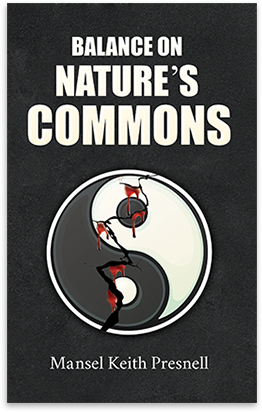
THE IMPORTANCE OF INSTINCT
The following is an update of an existing blog that needs upgrading. Would you please do so.
Regards
Keith
THE IMPORTANCE OF INSTINCT
A basic distinction between inert matter and living matter, is that although inert matter may suffer change, living matter is endowed with instinctive knowledge, enabling it to progress change. On that basis, one can reasonably conclude that living matter is integral for evolution.
Evolution requires a balance between homogeneity and chaos. Too much order stifles change, while lack of order results in mishmash of counter-productive change. Balance between homogeneity and chaos provides ordered diversity. With diversity comes flexibility, durability and evolution.
Every living organism starts life with the ability to ‘sense’ its external environment, and to then choose an appropriate response. That ‘common’ sense is what we term ‘instinct’.
We observe that the physical makeup of a living organism is 100% inert matter, so it is something other than physicality that enlivens an organism. Enlivenment is a reflection of DNA (deoxyribonucleic acid), which manages a complex algorithm dictating both the the physicality and the individuality of every organism on this planet. DNA is the genesis of an individual’s potential to perform. It is the source of complex feelings and reactions that, exposed to environmental influences, blossom to become that individuals’ personality. It comes with a natural interest in balance.
A white sheet of paper inside a picture frame does little to stimulate interest. The messy surface of an artists palette likewise has little to recommend it aesthetically, but the painting produced by a competent artist presents us with diverse colour and form associations that we can enjoy. In the same way, while a monotone often is intrusive, and the chaotic noise generated by an orchestra tuning up can grate on our nerves, when that orchestra starts to play, we hear a diversity of sound that can inspire. Artistic expression is the face of an instinctive need to seek the balance between homogeneity and chaos, and in the process, advance evolution.
As individuals, our ability to advance evolution is somewhat limited. That objective is better served if we function as a group. Therefore, we are instinctively gregarious, so much so that, as individuals, we would not thrive without the security of belonging to a group.
So evolution would appear to be an expression of life, or vice-versa, and living matter an expression of instinct, or vice versa.
While the origins of all organisms on this planet derive from common DNA, the plethora of niches they occupy, and thus the knowledge they need to survive, is usefully supplemented by knowledge acquired along the way. Acquired knowledge can be used to facilitate directional change, and while the direction may be positive in terms of progressing evolution, it can equally detract from evolution. It stands to reason that evolution is best served where learned behaviour is moderated by the natural protocols embedded in our instincts.
When society educates a person, it assumes responsibility for providing appropriate opportunities for that individual to better their situation. Deprive them of a challenge and they will instinctively focus their enhanced abilities in alternative directions. If that happens, the efforts the community has put into educating that person may well backfire to become a key element of anti-social behaviour.
From Nature’s perspective there are three categories of action. The first is actions that are right, being actions that progress evolution. Then there are actions that do not affect evolution, and we might think of these as being actions that are not wrong. Finally, there are actions that inhibit evolution, which are actions deemed by Nature to be wrong.
Our ‘gut feeling’ does not lend itself to programming terminology, but if we listen to it, we generally know whether what we are doing is right or wrong.
Logical thought enables society to act without regard to the needs of evolution. We use logic to regulate and coordinate social activity in accordance with a political agenda. Frequently, those regulations are based on averaging, and with average situations being statistically rare, most require some degree of interpretation. Should enforcement lack interpretation, in other words be applied without recourse to common sense, then the product of regulation may well have an unintended outcome.
Flawed logic may well underpin the fallibility of the species. Humanity must regain respect for the power of instinctive reasoning, as ultimately that is what distinguishes organic life from artificial intelligence. Artificial intelligence is much more capable of using logic to assimilate and manipulate knowledge than is humanity. In a perfect world, the role of humanity may well be to supplement the logistical capabilities of artificial intelligence with intuitive wisdom.
Instinct is the genesis of innovation. Individuals innovate, communities and organisations exploit the potential of those innovations. From the advent of stone tools designed to extend natural capabilities, to the development of artificial intelligence with the potential to audit all human effort, all seem to be naturally programmed outcomes that owe their existence to an instinctive drive that pushes individuals to explore and innovate.
Reversing humanity’s actions that have a negative effect on the evolution on this planet, will involve universal access to an education that nurtures individuality, while recognising the importance of instinct. It is mortifying to realise that the future of our species is being downgraded as a consequence of a majority being prepared to wear the self-aggrandisement and inane posturing of a minority that, failing to appreciate the importance of instinct, are sponsoring a form of leadership devoid of common sense.
Post Views : 92